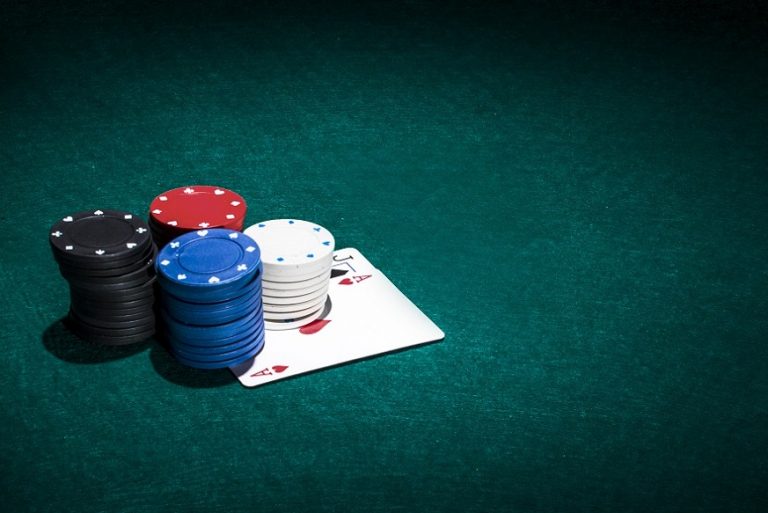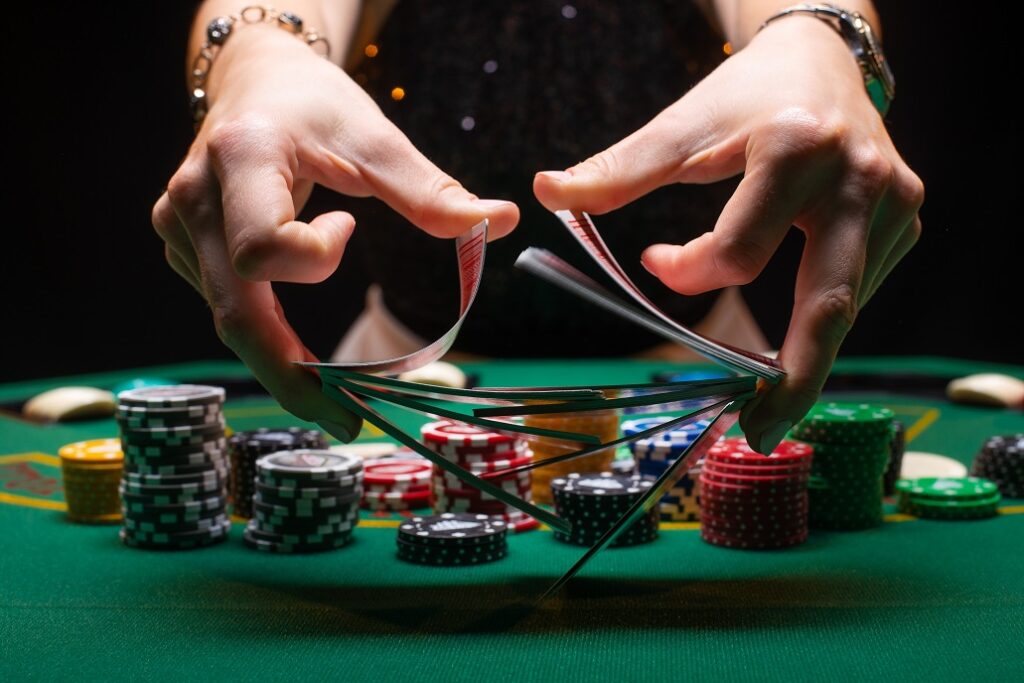4 Reasons Never To Count Cards
Card counting is one of the hottest topics amongst Blackjack players. Being able to outsmart the casino and walk away with extra cash in their pockets through counting cards is something many gamblers dream about.
We’ve seen it in the movies and read about those big casino winners who defied the odds with their card counting skills. If you search Google for ‘card counting’ you’ll find no end of advice, systems to purchase and software to use.
If you head over to Amazon you’ll find hundreds of books on ‘How to card count’ and it’s not a new trend either. Dr.Edward O.Thorp wrote Beat the Dealer in 1962 that laid out a plan for card counting in blackjack.
Before we dive into why all you potential card sharks out there will make a big mistake wasting your valuable time in learning how to card count, we should briefly explain what card counting is.
What is Card Counting?
Card counting or card reading as it is sometimes known is a strategy that is used by some blackjack players to identify if the hand dealt will have a potential advantage to either the player or dealer. The card counter tries to reduce the casino’s house advantage by tracking the cards which have been drawn by other players and the dealer. By taking into consideration how the low and high valued cards have been dispersed the player can make better-informed decisions on how they should play their hands. While it is not illegal to count cards if you are suspected by the casino security there will be payback and we are not talking in cash!
One of the most popular card counting techniques is the Hi-Lo system; it works by giving the high cards a value of -1 and the low ones a value of +1 when they are added together the total is the running count. If the ratio of high to low cards is more favourable for the player with more high cards left in the shoe the player can chance bigger bets.
For those who are wondering about card counting online, as a random number generator will decide the outcome of your hand card counting is not an option.
So now we have discussed what card counting is and understood it’s popularity we are going to share with you the reasons why we believe it is such a bad idea.
Profits are Slim
We’ve all seen the Hollywood movies, where the hero in a five-minute scene uses their superior card counting skills at a casino to bank thousands and walk away the victor. The reality is far from the movie screen myth and you’ve really got to put in the hours to make the slimmest of profits.
The majority of card counters have an edge over the casino somewhere between 0.5% and 1.5%. This means if you bet $100 you can expect to earn 50 cents to $1.50 back in winnings. With these small margins, there are no guarantees that you will win every time. All players will experience losing streaks card counters or not. So a large bankroll is required if you want to profit from card counting.

Card Counting is Difficult
Blackjack is one of the casino games that isn’t down to luck. If you want to reduce the house edge in your favour you will need to know all the rules such as when to split and understand early and late surrender. Once you have mastered the rules you then need to learn basic strategy if you want to lower the house edge further. This will require learning and memorizing dozens of different card playing combinations. If you’ve done all this and you play blackjack with an optimal basic strategy you can reduce the house edge to 0.5%.
Once you have grasped the rules and committed to memory basic strategy now you can start to learn card counting. You’ll hear many blackjack card counters say, it’s simple to learn and it takes a bit of practice but this isn’t the true story. OK you don’t need to be a mathematics professor or a Ph.D. to count cards but you do need to invest a lot of time and dedication. You don’t need to be rain man to use it but you still will need to keep a running count and divide fractions to find the true count.
There are free blackjack trainers online where you can practice these skills but using them in a casino is a whole new ball game. There are going to be no end of distractions to contend with. You’ll have the dealer, the pit boss and other players engaging you in conversation at the same time as you are trying to count. You’ll also likely to be as nervous as hell, worrying about if you are going to get thrown out of the casino!
You’ll have to put in hundreds of hours of play practising with a minimum bet and low stakes blackjack to get yourself ready for the big money games. It also can be extremely hard to card count for hours on end without making any errors. Just one mistake can turn out to be a costly one.
Savage Bankroll Swings
If you want a true reflection of the highs and lows of card counting, forget the books and films and check out some of the blackjack message boards where the experienced card counters talk the ‘real talk’ about what goes down at the casino. You’ll read horror stories of them experiencing down streaks that have lasted hundreds of hours.
If you head out to the casino and have a losing streak that lasts hundreds or even thousands of hands when you are testing your card counting skills, do you have the fortitude to carry on? And even if you have the resilience to keep going have you got the bankroll? A bankroll of at least $10,000 is the figure needed according to experienced card counters to survive these fluctuations of fortune.
Getting Caught
One of the best reasons to never count cards is the risk of being thrown out of the casino. While it’s not illegal to card count it’s up to the discretion of the casino if they wish to remove you from their establishment or not. And nine times out of ten they will! Some will blacklist you so you won’t be able to play at any of their casino’s nation or worldwide.
Card counting has been around since the early days of casinos and books have been written since the sixties. The casinos know that players will try to game the system and they have become more and more sophisticated in spotting card counting. Staff are trained in spotting tells that will tip them off if players are counting cards.
Some of the barriers to card counting that casinos have put in place include;
The Cutting Card
One of the first interventions to stop card counting at casinos was to put the cutting card in use so that the whole deck was never played through. By setting the cut card earlier it makes the game more difficult to count cards. Your average blackjack player doesn’t really care about deck penetration but card counters do. This is also why card counters don’t like shuffling machines as their deck penetration is around 2%.

Inhouse Automated Card Counting Systems
Modern technology has resulted in refined automated systems that can detect shady players. Casinos will perform their own card count by scanning all the cards that are dealt from the shoes. If they detect that the card deck is skewed and providing an advantage to the players, it will be combined with information regarding any betting irregularities from the blackjack table. If the computer notes that any player raises their stakes each time the deck is hot this would indicate that they might be counting cards. They will likely be asked to exit the table or casino.
Microchipped Gambling Chips
This another high-tech method of detecting any inconsistencies at the blackjack table at the casino. By planting microchips in the casino chips information can be collected and tracked on the amounts that are wagered at the table.
Facial Recognition Software
If you’ve been caught card counting and want to chance the same casino again, think again or get your best disguise kit on! Casinos now have surveillance technology that will recognize if you are a known card counter. You’ll be scanned on entering the casino and told to leave before you can make your first bet. You might also find that your image is shared with other casinos making casino play much more difficult for you in the future.
Card Counting Tells
Card counting detection will also be carried out by the dealer and they will be looking out for tells.
If a player is alone, uncommunicative and not drinking alcohol it might get them on the dealer’s radar. The player could be perfectly innocent but if you are a card counter you will want to blend in so as not to arouse any suspicion.
Changes in betting patterns are another counting tell. When a player has been wagering the minimum amount over a number of hands and then suddenly increases their bet it might be a cue for the dealer to shuffle the deck.
Another obvious tell is when players start to bet higher towards the end of the shoe and then return to a minimum bet at the start of a new shoe.
Sometimes the dealer might be card counting as well! There will be times when they notice that the count is beneficial to the players and randomly shuffle the deck or decks.
Another consideration you need to make is that you need to cover your tracks when playing. It’s going to be pretty obvious to any casino employee if you are only placing maximum bets when the count is on your side. You might as well be carrying a placard saying ‘Hey I’m counting cards’. This means that you’ll need to misdirect by making cover bets and this will bring that small percentage advantage down.
If you want to go ahead and be a card counter knowing how not to act like a robot and mix your game up is yet another part of card counting that you will need to master.
In Conclusion
So there you have 4 reasons to never count cards at a casino but we aren’t here to dictate to you. If we still haven’t dissuaded you please go ahead! Just remember this is real-life not the movies, you’ll need a big bankroll, plenty of time and a whole lot of patience. You will also risk the shame of being removed from the casino you are playing at and potentially blacklisted.
Even the best blackjack card counters only gain a small advantage over the house of between 0.5% and 1.5%. You must also factor in that at times you will experience substantial losing streaks during long blackjack sessions and won’t see any profits. So is blackjack card counting a wise decision? We’ll leave that up to you to decide.





